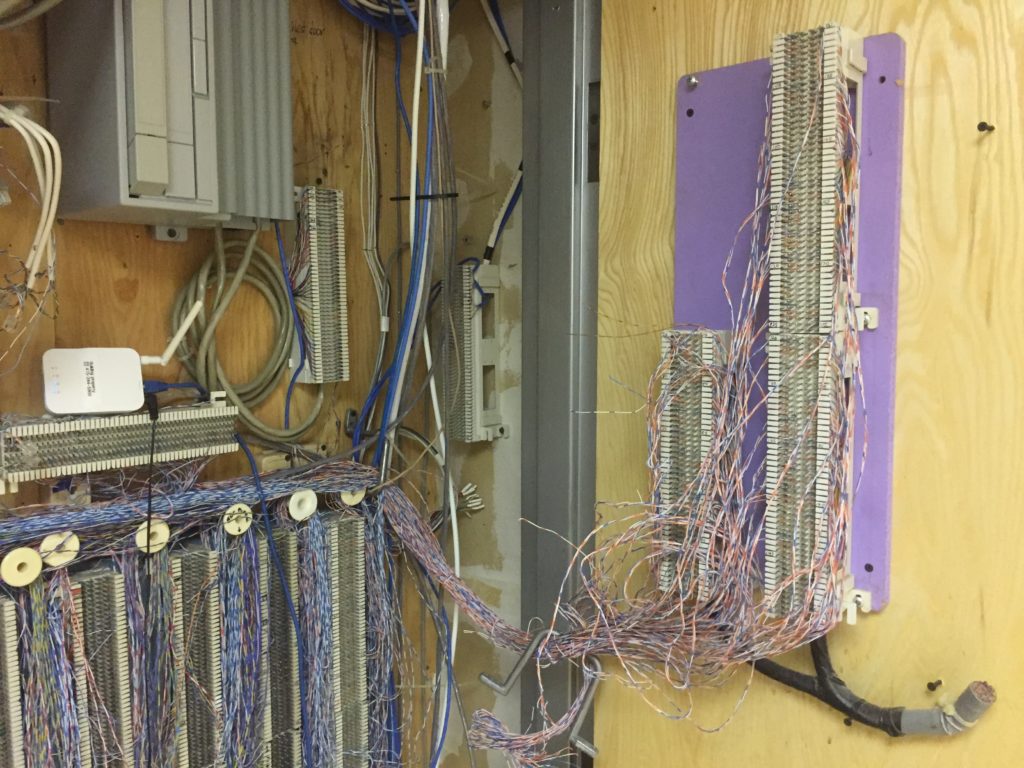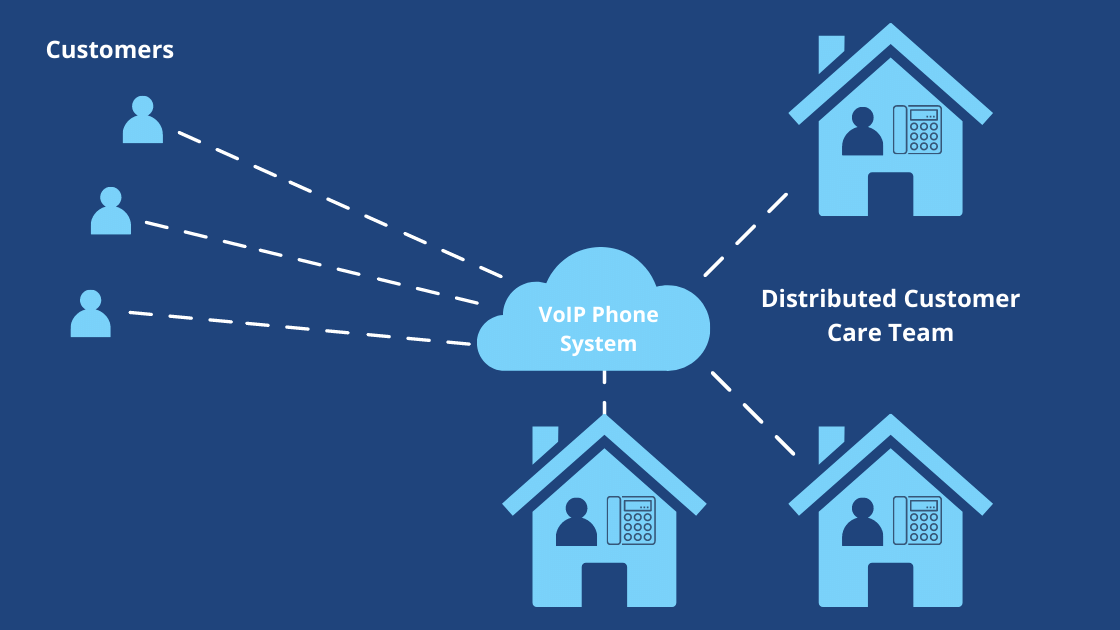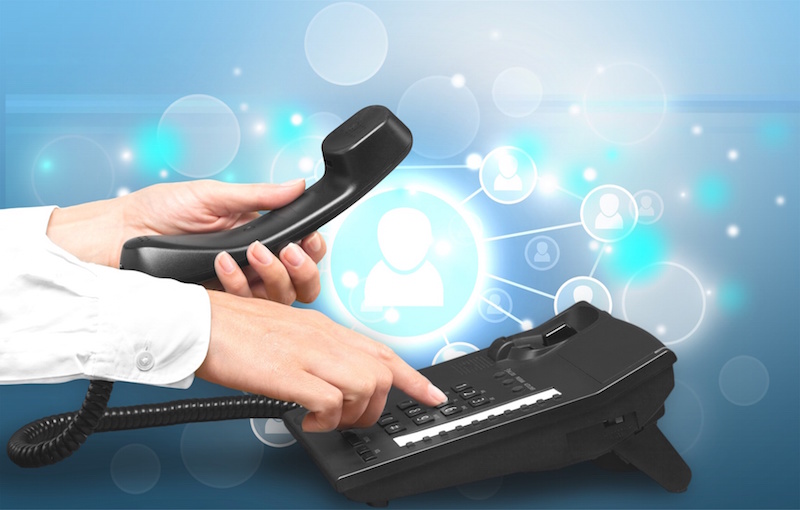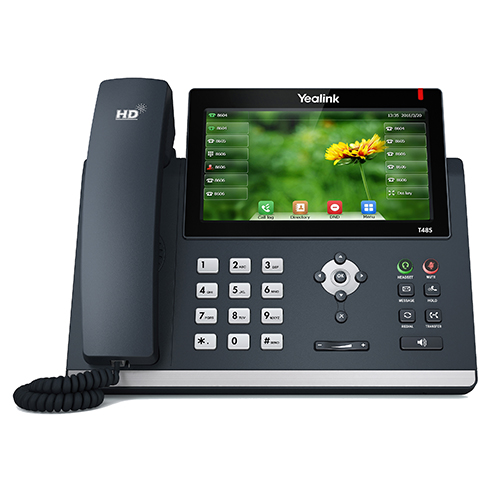Today’s business environment looks much different than a few decades ago. The advances in communications technology enabled by the internet have introduced various new ways for companies to do business and employees to get work done.
One aspect of communications that the internet has transformed is telephone service. When comparing VoIP vs landline telephone service, it’s essential to know that they are two very different technologies.
Choosing which is right for your business will significantly impact how your office communicates, how much you pay for phone service, and what kind of services your customers and employees can use.
What is a Landline?
When people say “landline,” they are normally referring to a telephone that uses a solid core, twisted pair copper wire and plugs into a two or four-pin wall jack.
Generally speaking, copper wire phone technology hasn’t changed much since it was invented in the late 19th century. Landline phones are based on an analog technology that sends signals through a series of exchanges — physical switch boxes — that connect calls between two phones.
On the downside, that same analog connection limits the new features that service providers can introduce. Most carriers only offer basic features like call waiting, caller ID, voicemail, and call blocking.
Landline telephone wiring can become chaotic and maintenance-heavy. It can also take up valuable space. Legacy phone rooms and closets like the one pictured to the right can still be found in many office buildings.

Ironically, landlines are relatively reliable despite wiring messes like this. Because landline phones use physical wire connections to make and receive calls, they aren’t as susceptible to the service interruptions and slowdowns of other services.
What Is VoIP?
VoIP stands for Voice Over Internet Protocol. This business communications technology allows for making and receiving calls over the Internet.
VoIP phones do not use traditional twisted pair copper wire. The phones are connected using the same broadband internet connection that plugs into a computer or router. VoIP phones convert calls into digital signals within the phone itself. They don’t rely on the physical exchanges that landlines do.
The chaos of traditional phone closets goes away.

Because everything is digital and using an internet connection, VoIP service providers can offer a broader and more useful set of features that enable businesses and their employees to be more productive and efficient with their day-to-day communications.
In terms of reliability, excellent VoIP service depends on having a fast, secure internet connection. Before switching to VoIP, businesses will want to ensure their internet connection meets the requirements for VoIP service. Any bandwidth concerns should be discussed with their VoIP provider. It’s a plus if the VoIP provider also offers IT services and a cyber security suite.
Comparing VoIP vs. Landline
The best way to compare VoIP vs landline phone systems is to look at four key areas: features, technology, reliability, and cost.
Features
As mentioned above, landline phones are limited to only the most basic features, while VoIP phones allow for a wide range of features like having a virtual receptionist, voicemail-to-email, automatic call forwarding, three-digit dialing, and many more.
If having advanced features that work across multiple office locations, mobile devices, and in the cloud is essential to your business, then VoIP is the only way to get them.
A key VoIP feature use case
With today’s remote workforces, some businesses that have a traditional landline phone system have had to change their automated attendant greeting to include something like this 12-second clip, which is from an actual automated attendant greeting:
By contrast, a VoIP system allows for transferring calls to a distributed workforce of customer care representatives.

Contact us for a VoIP phone system quote
Technology
While the copper wire and exchange infrastructure of landline phone systems will likely be around for a while, it’s essential to know that this a legacy system that many phone companies are no longer committed to upgrading.
Digital communication is rapidly becoming the new standard in business and consumer technology, and most phone companies have committed to building a digital infrastructure going forward.
Reliability
The one slight edge that landlines have over VoIP phones is their reliability. However, as high-speed internet service providers continue to improve their offerings, the small gap between VoIP and landline reliability will close.
If reliability is a crucial component of your VoIP vs. landline evaluation, speak with your internet service provider to see what options are available to ensure your connection is secure and meets the requirements of whichever VoIP provider(s) you are considering.
Cost
Often, the deciding factor when considering VoIP vs landline service is that VoIP is usually 40-80% less expensive than traditional landline phone service.
Having multiple landline phones in an office requires something called a private branch exchange (PBX). This is a physical piece of hardware that lives on-premises and can cost tens of thousands of dollars.
Eliminating this initial outlay and the accompanying service and maintenance costs makes VoIP a far more inexpensive proposition — especially for startups and SMBs that only need a few lines as they’re growing.
Old vs. New
VoIP vs landline phones is really a comparison of new technology vs old technology. As most of us have moved from typewriters, paperbacks, and cassette tapes to computers, Kindles, and iTunes, telephone service is also going all digital.
Businesses that take advantage of VoIP’s many benefits over landline phone service will reduce costs, offer better communication options to customers and employees, and take advantage of new digital VoIP products and services as the technology matures and improves.


